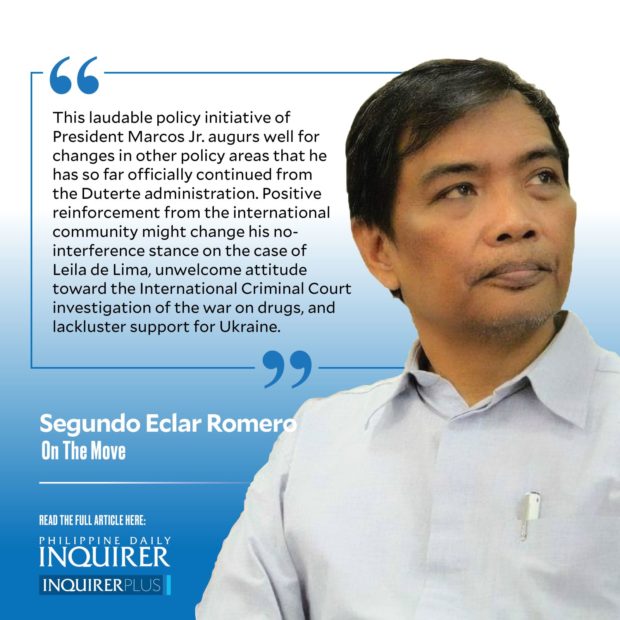
The Edca was signed in 2014 under the Benigno Aquino III administration, shortly after it instituted arbitral proceedings against the People’s Republic of China before the Permanent Court of Arbitration (the South China Sea arbitration). In March 2016, months before the end of Aquino’s term, the Philippines agreed to host five US military facilities in five Philippine military bases—Fort Magsaysay (army), the biggest military camp in the country, and four air bases—Basa in Pampanga, Antonio Bautista in Palawan, Benito Ebuen in Cebu, and Lumbia in Cagayan de Oro.
The proposed locations as requested by the US are in Cagayan (the northernmost tip of Luzon facing Taiwan, two sites), Isabela (facing the Pacific), and Zambales and Palawan (facing the West Philippine Sea).
Austin reiterated President Joe Biden’s “ironclad” commitment to the defense of the Philippines. The PH-US Mutual Defense Treaty “applies to armed attacks on either of their armed forces, public vessels, or aircraft anywhere in the South China Sea or West Philippine Sea.” Enabling the deployment of more US facilities and forces in the country makes that commitment more tangible and plausible.
The sense of urgency in accelerating the full implementation of the Edca and scaling up the American operational security posture in the Philippines was evident during Austin’s visit. It was announced that the US has already allocated $82 million for infrastructure at the existing five Edca sites. As expected, there were unmistakable hints of social and economic benefits for host local communities.
The Duterte administration attempted to backpedal Edca, at one point, threatening to abrogate the agreement altogether as the former president pursued a policy of appeasement toward China, at times boasting of a personal friendship with Xi Jinping and Vladimir Putin. Duterte reinforced his terms of political endearment with Xi and Putin through unprovoked insults against President Barack Obama, the United Nations, and even the Pope. He dismissed the arbitral award to the Philippines as merely a scrap of paper.
The Marcos Jr. administration reverses this policy of appeasement and boldly takes a policy of containment. Mr. Marcos’ visit to China in January signaled the Philippines’ openness to close economic ties with China. His revival of PH-US security relations, on the other hand, signals frustration with China’s continuous assault on Philippine sovereignty and interests in the West Philippine Sea.
China has criticized the agreement, blaming the United States for inveigling the Philippines into it “out of its self-interests and zero-sum game mentality.” China said the US’ actions “escalate regional tension and undermine regional peace and stability.”
Defense Secretary Carlito Galvez Jr. is now on a mission to get public and local government acceptance of the four proposed military bases. As expected, the presence of more US forces will be opposed by various groups and local politicians. But the sense of helplessness the Filipino people and their leaders have had in dealing with China regarding the West Philippine Sea predisposes them to support Mr. Marcos in this policy decision.
The decisiveness of the Marcos Jr. administration in the field of Philippine foreign relations promises to raise and enhance the profile of the Philippines in the region and the world. The world scrambles for a key to the restoration of international order in the wake of Putin’s war against Ukraine and the anticipation of a possible similar crisis in Taiwan and the South China Sea. The Philippines has been the missing strategic link in the network of US alliances from South Korea, Japan, and Australia around the Taiwan and the South China Sea flashpoints. Apart from its geographic centrality with respect to the South China Sea and Taiwan, the Philippines has hand-in-glove interoperability with the United States politically, historically, culturally, and militarily.
This laudable policy initiative of Mr. Marcos augurs well for changes in other policy areas that he has so far officially continued from the Duterte administration. Positive reinforcement from the international community might change his no-interference stance on the case of Leila de Lima, unwelcome attitude toward the International Criminal Court investigation of the war on drugs, and lackluster support for Ukraine.
doyromero@gmail.com